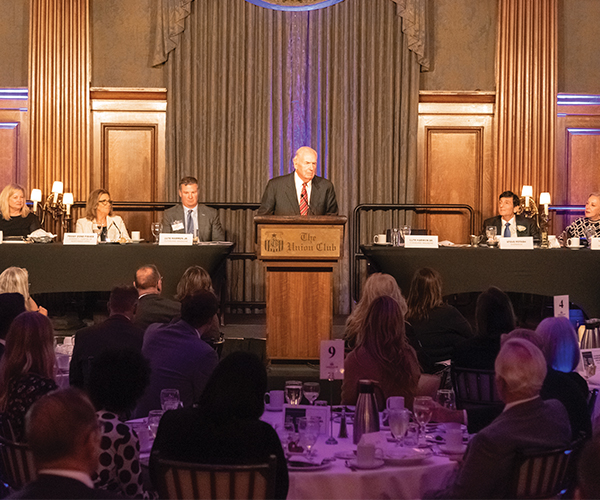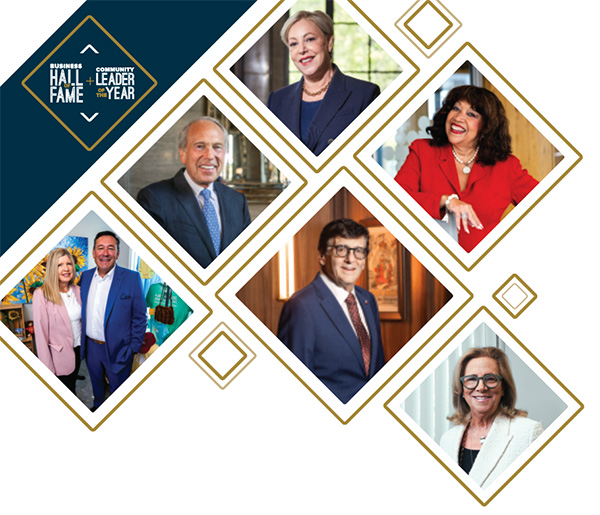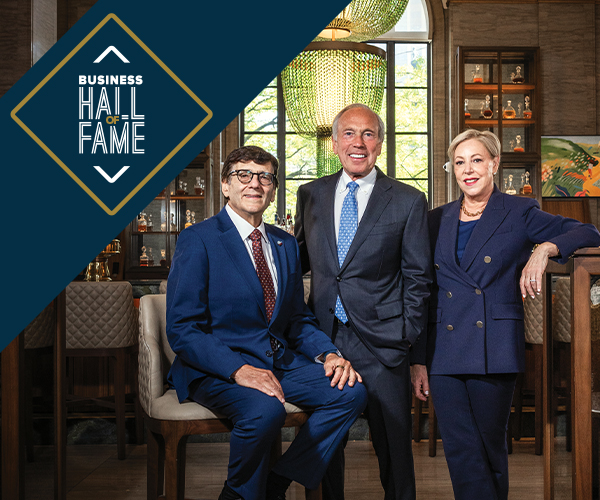The dream Great Lakes Brewing Company founders Dan and Pat Conway had for their business is right in the name.
From the time the brothers started the business in 1986, they hoped the taste for their beers would catch on beyond their hometown. “We had hoped it would grow to become not just a household name here in Cleveland, but in the Great Lakes region,” says Dan. Now Great Lakes distributes in Kentucky, New York, Pennsylvania, Illinois, Indiana, Michigan, Minnesota, New Jersey, North Carolina, Virginia, Washington, D.C., West Virginia and Wisconsin. Dortmunder Gold lager is a staple in many households and seasonal favorites such as Christmas Ale quickly sell out of stores.
Even as Great Lakes has lived up to its name, the Conways have kept focus on their backyard. The brewery is based in Ohio City, the neighborhood just west of downtown Cleveland where it got its start. The site’s brewpub sources many of its ingredients from Pint Size Farm, a Great Lakes partnership with Hale Farm and Village. Others come from Great Lakes’ share of Ohio City Farm, one of the country’s largest urban farms. The company’s Burning River Festival and associated foundation bring awareness and support to the region’s freshwater resources. There are also plans, with the recent purchase of land in the Flats, to expand the brewery’s footprint in Cleveland.
This hometown favorite traces its roots beyond Cleveland or the Great Lakes region to the Conways’ travels in Europe. There, they experienced a small brewery movement that was just beginning to catch on in the U.S. “It was on the West Coast; Sierra Nevada had started a couple years before. Sam Adams had started on the East Coast,” recalls Dan. When Pat moved from Chicago back to Cleveland, he and Dan — who was working in banking — put their heads together and dreamed up the idea to start their own brewery. That idea hatched into Ohio’s first microbrewery. Even as the scene has exploded in recent years, Great Lakes remains the state’s largest. In the Brewers Association’s most recent ranking of brewing companies by sales volume, Great Lakes was No. 20 in the U.S.
The Winking Lizard Tavern was one of Great Lakes’ first customers. Co-owner John Lane credits the Conways with helping bring the craft beer movement to Cleveland. “They were the local [beer]. They were the ones who really put craft on the map to the local populace,” he says. “It’s one thing to import craft beers from all over the world, but it’s another to have one right in your backyard.”
When Great Lakes opened in 1988, Cleveland’s brewery industry was nonexistent. The city’s last brewery, C. Schmidt & Sons, had closed several years before. The Conways recruited two former Schmidt employees, Thaine Johnson and Charlie Price, to help them. Together, they designed Great Lakes’ seven-barrel brewing system. Now it has a 75-barrel system for packaged beers and a two-barrel system for small-batch beers. The brewery’s operations were housed in renovated 19th century buildings in Ohio City, which at the time was not the thriving, trendy neighborhood it is today. “To take that risk was huge,” says Lane. “There wasn’t this vibrant West 25th [Street] neighborhood that you see today…They took an area that was down and out and revitalized it.”
Great Lakes’ original beers paid homage to the Conways’ favorite European styles, as well as their hometown: Eliot Ness Amber Lager is named for a prohibition officer who frequented the tavern where Great Lakes is now located. Another signature beer, its Dortmunder Gold Lager, won the gold medal at the 1990 Great American Beer Festival Awards. Throughout the ’90s, the brewery expanded, eventually moving to its current production site on Carroll Avenue.
Great Lakes grew its community initiatives in the 2000s with its first Burning River Fest and the founding of Pint Size and Ohio City farms. Lifting up the local community has long been a priority for the Conways. The brewery buys from local sources whenever possible. The brewpub is stocked by local vendors such as West Side Market and Ohio City Pasta. Burning River Foundation recently funded a major renovation of Cleveland’s historic Coast Guard Station, and to date has donated nearly $700,000 to local nonprofits.
The Conways also have put environmental sustainability at the forefront of their work, incorporating solar energy into their facilities; reducing water usage from the brewing process; reusing bottles; and reducing waste through the company’s farming practices. A key measure of the company’s success — and an indicator of Dan and Pat’s values — is what they call “the triple bottom line:” social, financial and environmental.
When Great Lakes celebrated its 30th anniversary earlier this year, the Conways announced an employee stock ownership plan. The industry’s boom has led to numerous opportunities for Dan and Pat to sell, but this move was more in line with their values. “We easily could have sold to a number of suitors who approached us throughout [the last several] years,” Dan says. “We thought it would be better to keep it independent.”
Recently, the Conways have been thinking about the company’s future and their role in it. The expansion plans are part of that, as are the addition of a new CEO and CFO. They have also been working on a succession plan. The pair will leave a legacy that goes beyond their product. As Lane puts it: “They’re really two passionate guys — not just about beer, but about their community.”




